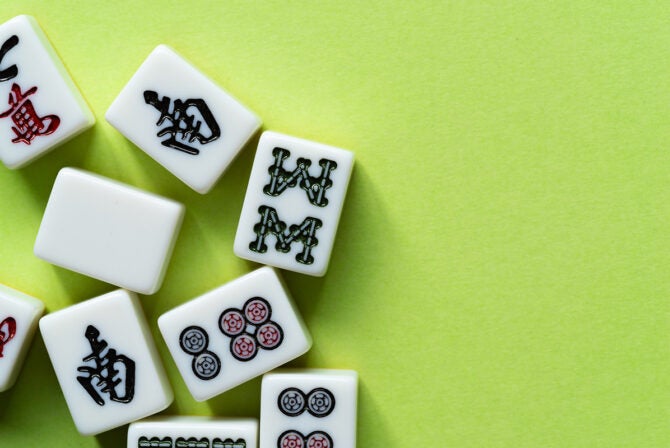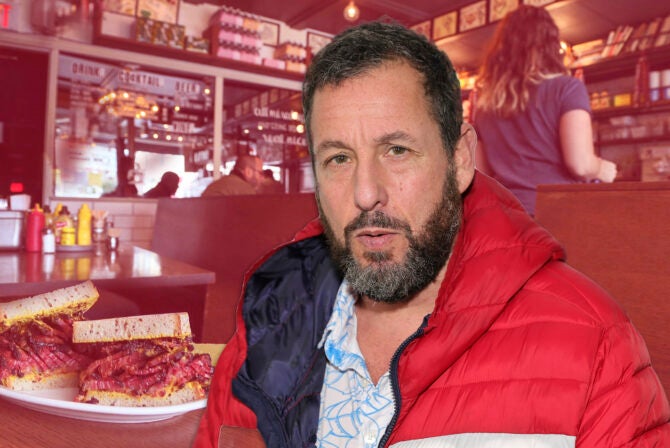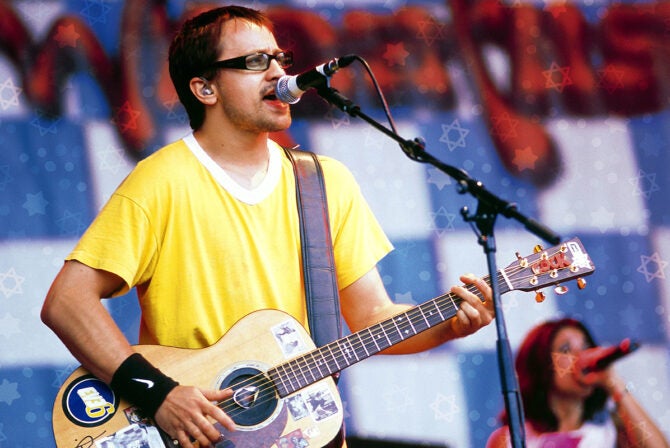When anybody asks me about my background, I say, “Jewish.” I always hope the answer will satisfy, but it rarely does.
“Do you keep kosher?” the friendly chat continues.
“No.” Then I feel compelled to explain. “My family is from the former USSR. In my grandparents’ time, observing could get you arrested. So they let go of traditions, didn’t even speak Yiddish in the house.”
“But you go to the synagogue?”
“I’m an atheist. Would be strange to celebrate a God I don’t believe in. But we light the Hanukkah candles with the kids,” I hasten, guiltily. “They enjoy it.”
Should we ever run out of things to say, there’s also the, “Do you speak Hebrew? No? Why not?” “Interesting last name … Your husband’s? So he isn’t Jewish?” and, finally, “If you aren’t religious, don’t speak the language, have married outside the faith, and do not live in Israel, why do you say you are Jewish?”
I am not shy about my choices, and I have no difficulty telling the overly inquisitive that my self-identification is my business. Sometimes, though, the whole thing gets to me, and I am tempted to avoid the subject altogether. But when I’m asked again, I still answer, “I’m Jewish.” Why do I do that?
I had to think about my response especially hard when my kids started asking about themselves. I took them through the family albums. “Here’s Grandpa Chaim. He grew up in Poland. When he was 15, the Nazis killed his parents and his five older sisters. He survived because he happened to be in Warsaw on the day of the invasion. So he ran East and ended up in Russia.”
“That’s Grandma Rachel. I’m named after her. Except my parents couldn’t call me Rachel—that name was considered too Jewish in the Soviet Union; I had to be called Raya. But I changed it back to Rachel when we emigrated.”
My two girls look at the black-and-white photos and listen to the stories. But if anybody asks my kids who they are, they don’t hesitate. They say “Canadian,” and I don’t correct them. They are happy with their identity. They live in a civilized country that strives to be inclusive.
Unlike my kids, who have heard it from me their whole life, I learned that I was Jewish in kindergarten. I had the distinctive black curly hair and a “funny” last name, but even if the Russian kids hadn’t spotted me for a Jew, the daycare teacher set them straight. Then she’d watch a gaggle of kids taunt me. I came home crying and asked, “Who are Jews, and why do other kids call me that?”
My mom brought me to the bookshelves. My father is a physicist, so the books he had were written by Einstein, Landau, Richard Feynman, and others, whose last names sounded as funny as ours. “All these very smart books were written by Jews,” my mom declared. “People who hate us, hate us because we are really, really smart. Like you are.”
I think any modern Western parent would be horrified by that statement. It’s divisive. It praises a quality the child has no control over. It sets unreasonable expectations (I mean, me and Einstein, right) and it pits a 5-year-old against the world of enemies. Except, my world was already full of enemies—the displays of anti-Semitism became more virulent as I grew older. So what my mom gave me was a protective spell.
Admittedly, my Jewishness had been stamped into my face as surely as it had been written into my passport. (I can still see that word, “Jew,” scrawled in purple ink on the dotted line.) I had no choice about it. On the flip side, I made the most of it. Isaac Babel, Sholem Aleichem, Lion Feuchtwanger, Stefan Zweig—these were “my” writers, Jews like me. I had been the star student at my school—they could eat mine and Einstein’s dust. I learned to shout back, “And you are effing Hitler,” to kick and scratch, and to be certain that my parents would back me up if the school as much as dared to complain.
My Jewish identity is feral, ready to raise a finger and stick it through the eye of anyone who has a problem with it. I don’t wish it on my kids—so loved, so cossetted, so secure.
In a way, I am glad that an accident of birth does not define my children the way it did me. Their friends come from all over the world—France, England, Romania, South Korea, Kazakhstan, Greece—and their passports are nothing more than travel documents to them. But while the country I grew up in had done its damndest to shame and hurt me, my Jewishness has been a remarkable friend to me. A motivation to succeed. A shield against viciousness. A comfort in the face of unfairness.
I am loathe to give up my Jewishness because I owe it too much. So I celebrate it in little ways. I light the Hanukkah candles with the kids. We sing songs. We talk about family. And, when asked about my background, I answer, “I am Jewish.” It’s a choice.
And it’s a choice my kids are not making—since nothing compels them to. It’s a good thing, I keep telling myself. They can still have the fun stuff—the holidays, the music, the books, the trips to Israel. They don’t need to be saddled with the memory of the ghettos, with the belief that the world is out to get them personally. Still, something tugs at me. The guilt of having let go of something that wasn’t even mine? The fear that history might be readying to repeat itself? I don’t know.
If I’m asked about my background, I answer, “Jewish.” I do that for myself. It’s just that, if my kids happen to be around, I say it a little louder.
Read More:
No One Prepared Me for My Son’s Bris
9 Surprising Women Who Are (Or Were Raised) Orthodox Jewish
I’m in the ‘Divorce Buffer’ Phase And It’s Actually Not That Bad







